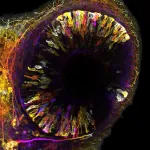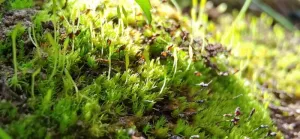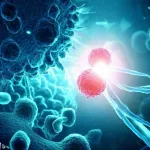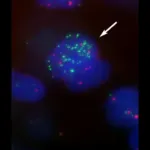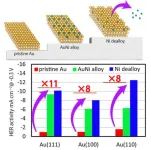(Press-News.org) First study to measure resilience in biomedical scientists during the pandemic
Sixty-one percent of study participants said they experienced a setback during pandemic
‘You can be as resilient as you want, but certain structural factors can hinder your professional advancement’
CHICAGO --- When COVID-19 presented the world with the greatest health challenge in modern history, it was biomedical scientists who stepped up to develop diagnostic testing and vaccines to slow the spread of the disease.
But how did these in-demand scientists fare psychologically and in their careers amid pandemic pressures such as juggling child and/or elder care with work? Until now, that hasn’t been measured.
A new Northwestern Medicine study is the first to measure resilience in biomedical scientists during the pandemic. The findings highlight the consequences of the pandemic for women scientists of all career stages who experienced greater household responsibilities while facing social pressure to advance their careers.
Of the 635 biomedical scientists surveyed between Oct. 1 and Nov 30, 2020, 61% reported experiencing a career or professional setback during the pandemic. A high measure of resiliency was often associated with a professional setback, the study found. Seemingly, resiliency did not pay off for many.
The study will be published Aug. 9 in JAMA Network Open.
“Our data show that you can be as resilient as you want, but there are certain structural factors, such as gender or child care, that can hinder your professional advancement,” said corresponding author Nicole Woitowich, executive director of the Northwestern University Clinical and Translational Sciences (NUCATS) Institute at Northwestern University Feinberg School of Medicine who was formally trained as a biomedical scientist.
Scientists were expected to persevere in achieving professional goals, expectations and milestones despite facing disparate professional and personal challenges, said Woitowich, who also is a research assistant professor of medical social sciences at Feinberg.
“We had originally hypothesized that resilient scientists would be less likely to experience setbacks during the pandemic — so these results surprised us,” Woitowich said.
The scientists collected data from biomedical scientists who had received funding from the National Institutes of Health (NIH) and/or were members of the National Postdoctoral Association. Participants self-reported demographic information including gender, race and ethnicity. Fifty-eight percent of respondents reported being female, 40% reported being male and 1% preferred not to say.
Survey respondents answered yes, no or unsure to the question, “Have you experienced career or professional setbacks as a result of the COVID-19 pandemic?” They also completed the 10-item Connor-Davidson Resilience Scale, a test that measures resilience or how well one is equipped to bounce back after stressful events, tragedy or trauma.
‘Resilience building is having a moment’
“Resilience building is having a moment in medicine right now, and while I think it supports beneficial coping skills, it might not sufficiently counteract sociocultural and contextual pressures arising from gender disparities within the biomedical workforce,” Woitowich said.
The scientists hope one outcome of this research will be an increase of focused strategies to support the professional advancement of women and gender-minority scientists, particularly in the wake of the pandemic.
Other Northwestern co-authors include Christine V. Wood and Lutfiyya N. Muhammad.
END
Brigham researchers are working on a new approach to target autoimmunity in the brain leverages designer bacteria to make treatment safer and more effective
Researchers from Brigham and Women’s Hospital, a founding member of the Mass General Brigham healthcare system, have designed a probiotic to suppress autoimmunity in the brain, which occurs when the immune system attacks the cells of the central nervous system. Autoimmunity in the brain is at the core of several diseases, including multiple sclerosis. In a new study, researchers demonstrated the treatment’s potential using preclinical models of these diseases, finding that the technique offered a more precise ...
To function properly, organs require a precise number of cells and a functional architecture, which are established during embryogenesis. Embryos are proficient multitaskers; they grow, and acquire shape and functional architecture all at once. Despite a lot of research on embryo development, scientists do not yetfully grasp how embryos orchestrate all these different tasks in space and time to ensure the formation of healthy organs. This was ...
The rare moss Takakia has adapted over millions of years to a life at high altitudes. An international research team led by Prof. Dr. Ralf Reski from the University of Freiburg and Prof. Dr. Yikun He from the Capital Normal University / China has now discovered exactly how it has developed the ability to survive frost and life-threatening high UV radiation. In the renowned journal Cell, they describe the genetic traits that protect the moss from extreme environmental conditions. At the same time, they document how climate change greatly altered the natural habitat of this highly specialized species within just a few years.
The ...
A Kaiser Permanente study provides new information that may help oncologists answer one of the most common questions they hear from breast cancer survivors: Is it safe to drink alcohol?
The new study, published August 9 in Cancer, is the largest prospective study to look at short-term alcohol use after breast cancer. The findings suggest drinking alcohol is not associated with an increased risk of breast cancer recurrence or dying from the disease.
“We know that women who drink alcohol are at increased ...
FOR IMMEDIATE RELEASE
Deep-learning technology developed by a team of Johns Hopkins engineers and cancer researchers can accurately predict cancer-related protein fragments that may trigger an immune system response. If validated in clinical trials, the technology could help scientists overcome a major hurdle to developing personalized immunotherapies and vaccines.
In a study published July 20 in the journal Nature Machine Intelligence, investigators from Johns Hopkins Biomedical Engineering, the Johns Hopkins Institute for Computational Medicine, the Johns Hopkins Kimmel Cancer Center and the Bloomberg~Kimmel Institute for Cancer Immunotherapy show that ...
(Vienna, 9.8.2023) Scientists at St. Anna Children's Cancer Research Institute and the Eberhard Karls University of Tübingen have shown that immunotherapy after stem cell transplantation effectively combats certain nerve tumors in children. Crucially, stem cells from a parent provide children with a new immune system that responds much better to immunotherapies. These results of an early clinical trial were published in the prestigious Journal of Clinical Oncology.
Childhood tumors of the nervous system, known as neuroblastomas, are associated with an unfavorable prognosis ...
The Human Frontier Science Program (HFSP) has published the new call for the 2024 HFSP Nakasone Award. Until September 30th, the global scientific community is invited to submit their nominations for this prestigious award.
The HFSP Nakasone Award recognizes groundbreaking contributions and breakthrough discoveries in the life sciences. The award celebrates exceptional achievements in scientific excellence, particularly those that have propelled the boundaries of biological knowledge forward.
In its 13th ...
For all the astonishing things artificial intelligence can do, it has a particular blind spot that one University of Virginia researcher seeks to remedy.
It can’t recognize all shapes.
“Current machine-learning models lack the capability to analyze and quantify the shape of objects presented in images with complex structures and large variations, especially in the context of medical imaging,” said Miaomiao Zhang, an assistant professor in the UVA School of Engineering and Applied Science.
The models are biased toward “seeing” image textures and have limited ability ...
Osaka, Japan – You’re likely familiar with RNA, the molecule that plays an important role in protein production and gene expression control. Perhaps you’re less familiar, however, with PIWI-interacting RNA (piRNA), a special type of RNA that protects the genome from mutations. Now, researchers in Japan have shed light on how these critical molecules are formed by the dynamics of several associated proteins in the germline of the fruit fly, Drosophila melanogaster.
In a new study published in the Journal of Cell Biology, researchers from Osaka University have clarified how the proteins Tejas (Tej), Vasa (Vas), and Spindle-E ...
In recent years, hydrogen gas has gained momentum as the fuel for a clean and green future. This carbon-neutral fuel source releases huge amounts of energy via combustion in the presence of oxygen with water vapor as the by-product. One of the most popular methods of hydrogen production is the splitting of water into hydrogen and oxygen using electricity.
An electrochemical cell is used to split water, and the hydrogen gas gets released at the negatively charged electrode in hydrogen evolution reaction (HER). Catalysts are used to lower the ...
